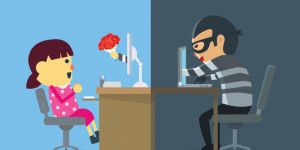Exploitation
Think about all your different relationships. They could be with close friends, a boyfriend or girlfriend – and maybe groups of friends from school or the area you live in. As we grow up, we develop relationships with lots of different people. It’s how we learn to enjoy healthy relationships, and that’s a great skill to have.
But things can go wrong along the way, and people might try to take advantage of you, forcing you into dangerous situations before you know it. That’s why you need to be aware of warning signs that someone may want to exploit you – and to be very careful who you trust.
When someone takes advantage of their relationship with you to get you to do something they want you to, that’s exploitation. This can be sexual, like being forced to have sex with lots of people, or criminal, like transporting or keeping hold of drugs.
Relationships with exploiters are ‘imbalanced’. That means they have either have something you might want, that you can’t get otherwise, or they are simply older and stronger than you. Someone might give you money, drugs, alcohol, gifts or somewhere to stay and then get you to do something in return for them.
Exploitation does not always involve physical contact; it can also occur through the use of technology. For example, asking a young person or child to send a nude in exchange for money is exploitation.
.png)

There are many ways someone might exploit children and young people. Criminal Exploitation, Sexual Exploitation, Modern Slavery. Please click on these links if you would like to know more.
Its also important to know that children and young people can often be ‘trafficked’ so that they can be exploited.
Trafficking is when a person recruits, transports (this can be arranging or organising the travel (they do not have to take them themselves) transfers or harbours (keeps captive) another person so that that the trafficked person can be exploited. It is irrelevant whether the trafficked person wants to travel.
In cases of criminal exploitation, we know that powerful, adult gang members recruit and arrange the travel of children and young people for the purpose of them selling drugs, firearms or sex on their behalf.
Remember, you can always contact Childline on 0800 1111, or 116 000 for the ‘Say Something’ helpline.
Theo Thompson from youth group organisation Young Solihull has collaborated with Birmingham rapper Vader to create the song ‘Don’t Pass the Parcel’. The song and music video was funded by the West Midlands Police and Crime Commissioner’s Community Initiatives Fund, which uses money seized from criminals. The song aims to educate young people on the dangers of becoming involved in county lines drugs gangs.
